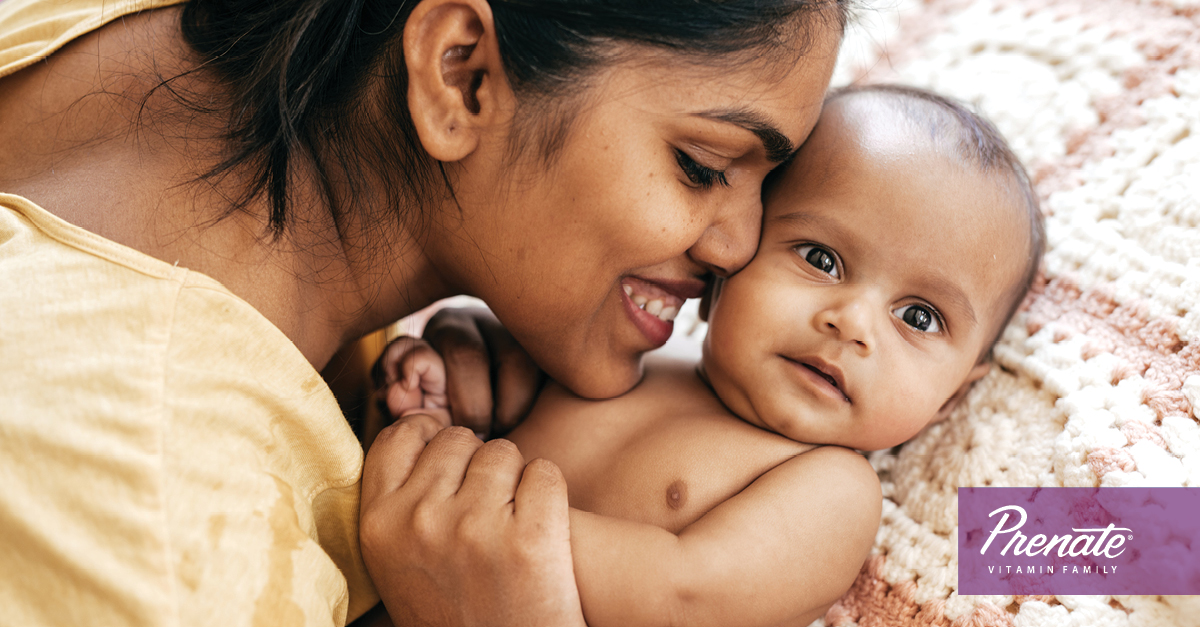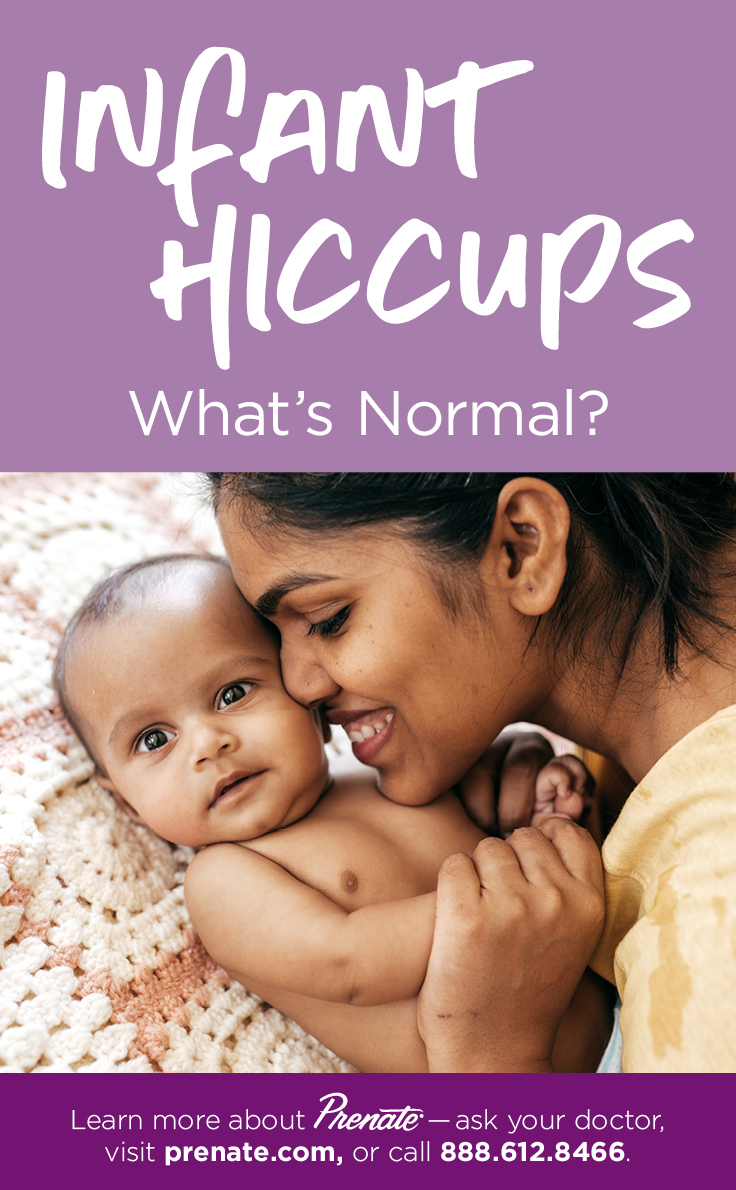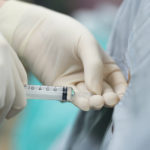Infant Hiccups – What’s Normal?
November 3, 2020
Hiccups are a natural reflex response that occur for a variety of reasons and are usually harmless. They can occur in babies frequently, especially after the baby finishes feeding, but children and adults can get the hiccups, too. Sometimes parents worry that persistent or frequent hiccups can cause discomfort for their babies or may be a sign of another problem.What causes baby hiccups?
Hiccups (medically referred to as singultus3) occur when the diaphragm contracts, forcing air out through a baby’s closed vocal cords, causing the “hiccup!” sound. These contractions can even happen to babies while they are still in the womb. Many expecting mothers will feel it when their babies have the hiccups. It will usually feel like quick, repetitive flutters or light kicks. Some women describe the feeling as popcorn popping in their bellies. Not only is this completely normal, but it is also a good sign that your baby is most likely developing as it should. Fetal hiccups can indicate your baby’s reflexes, respiratory system, and nervous system are all in working order.2
At-Home Therapies
Very often, your newborn will stop hiccupping on their own. But there are a few at-home treatments you can try to stop hiccupping1:
- Take a break from feeding to burp the baby (every 2 to 3 ounces is recommended)
- Give your baby a pacifier. The sucking motion may help calm their diaphragm muscles.
- Feed your baby gripe water (a mixture of herbs like fennel, ginger, or chamomile) and water.
- Give your baby a back rub.
What NOT to Do
It’s not a good idea to rely on old wives’ tales or remedies based solely on tradition or superstition. Here are some things you should never do to try to stop your baby’s hiccups1:
- Scare your baby
- Pull their tongue
- Try to make them drink water
- Hold them upside down
These “remedies” are not based on scientific facts or evidence, nor are they effective at stopping hiccups. More importantly, they can be dangerous when performed on a baby.1
What if my baby won’t stop hiccupping?
If you’re concerned that your baby has been hiccupping for too long or is feeling pain or discomfort resulting from persistent hiccups, you should contact your pediatrician. It is especially important to contact your pediatrician if your baby is hiccupping and is1:
- Crying more than usual, especially during or after feedings
- Arching their back excessively during or after feedings
- Spitting up more than usual
These symptoms could be a sign of gastroesophageal reflux (GER). GER is is a condition that occurs when partially digested food and stomach acid come back up through the food pipe. This condition may irritate the diaphragm and trigger spasms, causing hiccups.1 GER is also known as infant reflux and is relatively common, especially in newborns.4 If you are concerned that your baby is experiencing infant reflux/GER, talk to your pediatrician.
If you have any other concerns related to your baby’s hiccups, don’t be afraid to tell your pediatrician. Some new moms feel like a “nervous Nellie” or that they are overprotective or bothersome when they call their doctor about every little sneeze, cough, and yes, hiccup. But don’t worry, mama. It’s OK to be concerned about your baby, and sometimes you just need a little peace of mind.
Prenate® Vitamin Family
This post is sponsored by the Prenate® Vitamin Family, a line of prescription prenatal supplements designed to enhance preconception, prenatal, and postpartum nutrition in women. Talk with your doctor about how taking a daily prescription prenatal or postnatal vitamin could help support a healthy pregnancy and postpartum wellness.
You Are About To Leave This Website
By clicking continue, this link will take you to a website to which Alora Pharmaceuticals Policies & Terms of Use do not apply. Alora and its subsidiaries do not control the content or accuracy of third-party websites and assume no responsibility for their use.
















